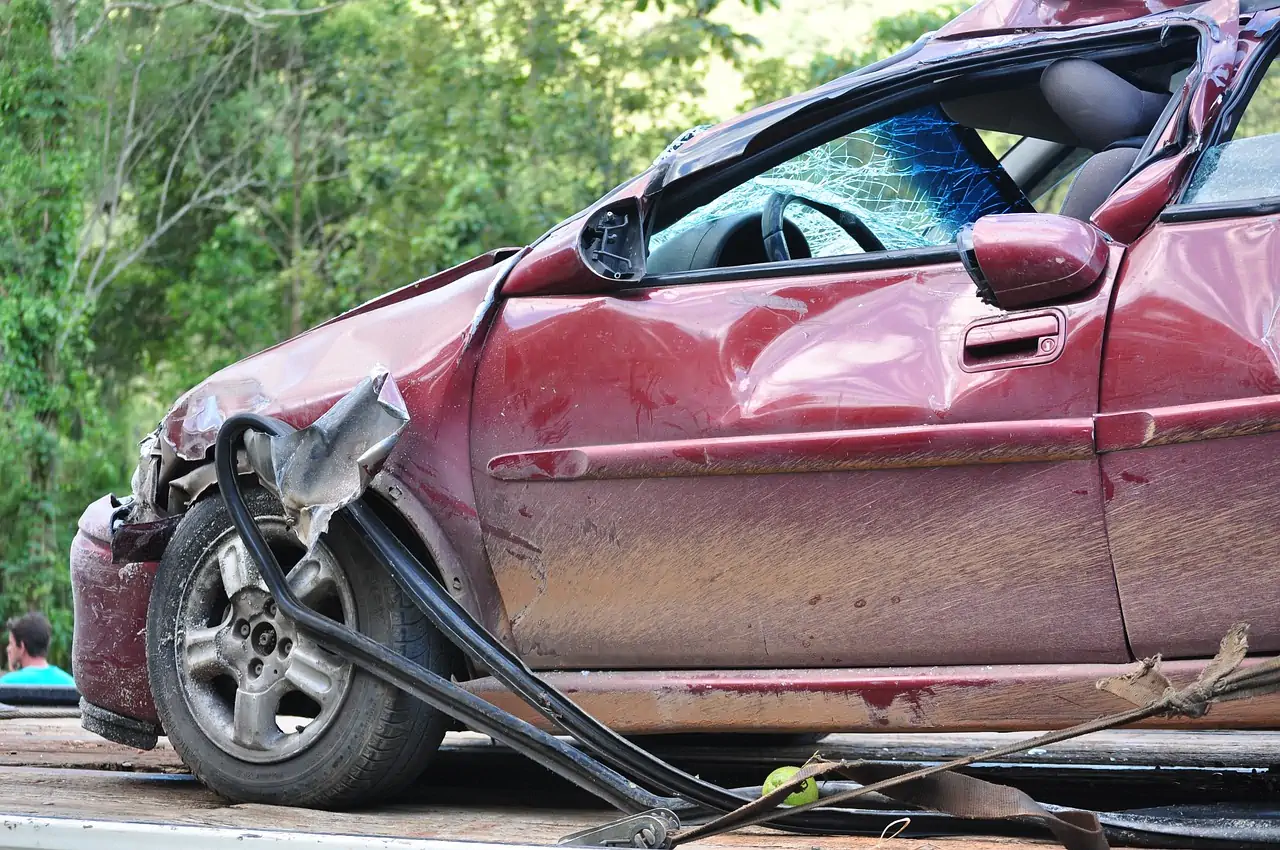Don’t Let a Partial Fault Car Accident Trip You Up

Image by Netto Figueiredo from Pixabay
Accidents happen in the best of places, even bourbon-soaked havens like Louisville. But when you find yourself nursing injuries alongside a pang of “maybe that was partially my fault,” navigating the path to compensation can feel like navigating the Churchill Downs infield blindfolded.
Fear not, fellow Bluegrass resident, because, in Kentucky, even partial fault doesn’t automatically disqualify you from seeking damages.
Just be prepared to navigate the legal nuances of modified comparative negligence.
Understanding the Rules of the Road
Kentucky’s accident laws acknowledge that fault is often shared, unlike a clear-cut victory in a derby.
This is why the state follows modified comparative negligence, which allows individuals to seek compensation even if they were partially responsible for an accident.
However, the compensation received is reduced based on the percentage of blame assigned to them. For instance, if someone trips on a broken pavement (30% of their fault) and sustains an injury, their claim would be reduced by 30%. If the individual’s share of blame exceeds 50%, they are not entitled to compensation.
It is important to note that Kentucky follows a “pure comparative negligence” system. This means that even if someone is found to be 99% responsible for an accident, they are still entitled to receive 1% of the compensation.
It is also crucial to understand that determining fault and assigning percentages can be complex and time-consuming. Therefore, consult an experienced personal injury lawyer who can help navigate these intricacies and ensure you receive fair compensation.
Building Your Winning Strategy
Here is the way to handle your claim with Kentucky expertise:
- Gather Evidence Like a Pro: Police reports, witness statements, photos of the scene, and even medical records are crucial ammo. The more evidence you have, the stronger your case.
- Keep Your Lips Sealed: Apologies are for your therapist, not insurance adjusters. Stick to the facts and avoid admitting fault, even if you suspect you contributed.
- Partner with a Legal Thoroughbred: Louisville’s legal landscape is no picnic. Find a local personal injury lawyer who knows the ropes and can advocate for your maximum compensation.
Beyond the Basics – Partial Fault Accident
Remember, modified comparative negligence is just the starting gate. Here are some additional factors to consider:
- Accident Type: Car crashes, medical malpractice, and slip-and-fall incidents have different legal nuances. Your lawyer can guide you through the specific rules.
- Shared Fault: If multiple parties contributed to the accident, their share of blame gets deducted from your damages, potentially increasing your payout.
- Intentional Acts: If the other party acted recklessly or intentionally, you might be able to claim additional damages beyond basic compensation.
The Bottom Line
Partial fault in a Louisville accident doesn’t have to be a dead end. Gather evidence, consult a lawyer, and understand the rules of the legal racetrack. With a strong case and expert guidance, you can still cross the finish line with the compensation you deserve. So, channel your inner Derby champion, put on your legal blinkers, and let a skilled attorney at The Sampson Law Firm guide you toward recovery. You got this, Kentucky.
F.A.Q.
What does it mean to be partially at fault?
Being partially at fault means sharing responsibility or blame for a particular situation or event. In legal terms, it usually refers to a situation where multiple parties are found to have contributed to an accident or incident.
For example, in a car accident, if it is determined that both drivers involved were acting negligently and contributed to the collision, they may both be deemed partially at fault.
The degree of fault assigned to each party will depend on the specific circumstances and applicable laws. Being partially at fault can affect insurance claims, liability, and potential compensation.
It is important to consult with legal professionals or insurance providers to understand the implications of being partially at fault in a particular situation.
Will insurance payout if it was my fault?
Whether insurance pays out if it was your fault depends on the type of insurance and circumstances. Liability insurance, like auto or homeowners insurance, may cover damages or injuries you caused. However, specific terms and conditions in your policy determine coverage.
Should you never admit fault in a car accident?
It is generally recommended to avoid admitting fault in a car accident, as this can have legal and insurance implications.
Admitting fault can potentially be used against you in a legal dispute or when filing an insurance claim. It is important to gather all the necessary information at the accident scene, such as taking photos, exchanging contact and insurance information with the other party involved, and obtaining any witness statements.
It is also advisable to contact your insurance company promptly to report the accident and seek guidance on how to proceed. Remember, it’s important to prioritize your safety and that of others involved in the accident, and always follow local laws and regulations regarding reporting accidents.
How do insurance companies determine fault?
Insurance companies determine fault in an accident by conducting a thorough investigation and considering various factors.
These factors may include police reports, witness statements, photographs or videos of the accident scene, and any available physical evidence. Insurance adjusters will review all the information and assess the actions of each party involved in the accident to determine who was at fault.
They will consider traffic laws, right-of-way rules, and any evidence of negligence or reckless behavior. It’s important to note that fault can be shared between multiple parties or assigned entirely to one party, depending on the circumstances of the accident. Ultimately, insurance companies will determine based on the available evidence and their interpretation of applicable laws and regulations.
